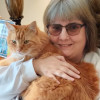Does writing well translate into learning to be a good public speaker?
Does writing well translate into learning to be a good public speaker?
I am taking a leap of faith and starting a public speaking class today. This is something immensely challenging for me, but something I feel I can grow from. I have always been a very expressive and passionate writer, but I am also incredibly shy and feel awkward addressing large groups. I was wondering if any of you have done something similar and found you ended up being better at speaking than you thought you would?Good question. I think being an avid reader and a gifted writer can certainly translate into being a good speaker for a few reasons. Firstly, your ability to structure sentences and tell a story is one of the hallmarks of a great speaker so if you can do it as a writer then you have the tools of the trade. What is then required is how to communicate these in a way that is entertaining and engaging. This is the 'wrapping' as I call it such as presence, gestures, eye contact and so on. The great thing is this latter stuff can be easily learnt whilst being able to tell a story is often an innate ability or crafted through writing or reading. The bottom line is you may just need to refine the tools of the trade.
Writing and speaking are quite different. When you're writing, you have limitless chances to keep re-reading and editing what you've written. Public speaking is more about being able to think fast at feet. It also requires more confidence, of course.
I love writing, and I also like public speaking but I'm not so good at it. Even when I receive a good feedback, most of the times just after finishing I feel, "darn! I could've made my speech SO much more influential and effective by adding such and such, or explaining with such and such example", and so on.
The point is, because you're a good writer, there's no doubt about the fact that you KNOW what you want to say. You're full of excellent ideas to share with the public - and that's definitely a big advantage (and starting point) in public speaking. The challenge, however, is being able to think quick when you're standing in front of people, and saying just "what" you want to, "when" you need to.
I'll also share this: In my personal experience, when I was speaking, I used to start focusing too much on people's reactions, their faces, and so on. It hindered my ability to think fast. When I'm writing, I'm solely focusing on the idea I'm writing about, and can obviously thus produce good quality content - that's the significant aspect that differs the two.
Anyway, it's very good you're taking this step. It's GREAT, in fact. Public speaking is a *very* learnable skill, and with solid writing, you already have a very good foundation of ideas.
All you need is CONFIDENCE. When you're speaking, don't think about what people might think - just divert your attention to your ideas and feel excited for the opportunity to be able to share your excellent ideas with public who will appreciate them - affirmations can cause a huge impact. Or just imagine you're sharing your ideas with your best friend, how will you explain it to him/her? Speak like that, but your face must reflect confidence, and show that you know very, very well just what you're talking about. Being doubtful is where most people go wrong.
All the best.I think reading can definitely improve your ability to speak, however, you might need to do more than read if you want to speak in front of a group.
A lot of people are nervous when speaking to large groups and so the best thing I can recommend is to start small.
If you're in a group situation with your friends, try telling them a story/joke that is at least a few sentences long. Speak a bit louder than you normally would and make eye contact with them while you tell your story. You may already do this, and if so, it's good practice for public speaking!
When you make eye contact with someone in the group, it narrows your focus. It then becomes a dialogue between two people, except you're the only one speaking. Switch your focus every couple of seconds.
Many of us do this naturally in normal conversation, and so doing it in larger groups can make it feel more familiar. Pay attention to when your friends speak, or when professors/teachers speak. They all try to make eye contact, not only to see if you're listening, but also to make it more of a conversation, rather than a lecture.
Of course, this is difficult to do if there are lights on you and the audience is barely visible.
If this is the case, guide your attention to different sections of your audience (avoid standing still and staring straight ahead or downwards) and speak to that group specifically. It will feel like you're speaking to a smaller group of people.
Hopes this helps!I have always been a good writer, but an incredibly awkward public speaker. The two talents are not necessarily related, unfortunately. I do not have the same ability to organize my thoughts when speaking that I do when writing. I have a lot more control of the situation when I am writing, which is probably why I like it so much.
I think it is great that you are trying to push yourself to get past your shyness. I know from experience how difficult it can be.I'm a good writer, but a boring speaker. I can do it, and have done it, but on the whole it's not an especially fun experience for me. I'm slightly ADDish, and it's difficult to keep all of the necessary information in active memory. The result: awkward pauses.
The Q&A after the formal presentation can be enjoyable, however.
I've noticed that stage fright only lasts for a few minutes. Then it's easier to focus on the task at hand. Here's something that helps me set the emotional tone for the presentation: Remind myself that I'm there to give useful information.
If some people in the audience like it--or even like me personally--that's a plus. But I should not put that aspect in the forefront.
Related Discussions
- 4
Are you a good public speaker?
by jaydawg808 11 years ago
Are you a good public speaker?
- 13
Are good writers also good speakers?
by Chitrangada Sharan 13 years ago
Are good writers also good speakers?
- 22
Trying to Break into the Field of Speaking. Any Tips?
by Scotty Knows 17 years ago
Good day everyone. To give you a little bit of background, I had been a sales manager in the automotive industry for years and left to start a software company. Our company is in the middle of an acquisition. So, in the meantime I have started to build a wealth management...
- 18
The Fear of Public Speaking.. .Why?
by APooch 11 years ago
I'm a newbie on here and I saw this as a discussion area. I have taken several public speaking courses and sort of studied the way people feel about it. I read an interesting statistic that in this world, people's #1 fear is public speaking. 2nd to that is death. Pretty interesting stuff in my...
- 16
Public speaking 101
by nikki1 16 years ago
What are your thoughts..
- 8
How to Overcome the Fear of Public Speaking?
by Shil1978 13 years ago
How to Overcome the Fear of Public Speaking?











